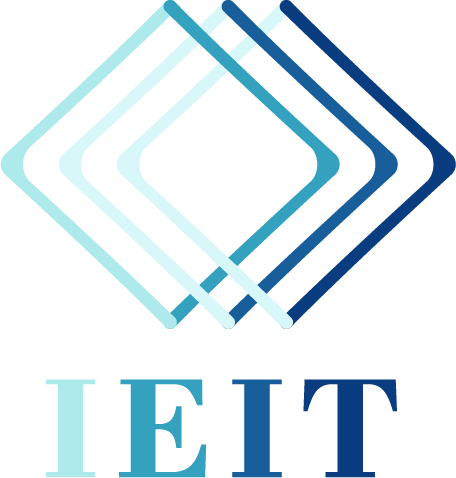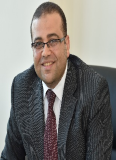

Speakers

Professor Ahmed Said Ghonim
Higher Colleges of Technology, Abu Dhabi, UAE
Brief introduction of your research experience:
Dr. Ghonim had been upgraded from a lecturer to a Full Professor from 1998 to 2017, appointed as university president for two universities from 2010 to 2019.
From 2019 and with the wide exposure in different higher education perspectives Dr. Ghonim has been shifted to play the advisory role for the universities with regard to Excellence and global visibility, provide highly responsible academic and administrative recommendations to build institutional and departmental dynamic capabilities, achieve outstanding results and develop the excellence maturity. This includes planning, organizing, directing and reviewing the overall academic and supporting operations and activities of the University, providing quality insights and recommendations, leading to successful accomplishment of the university mission and vision through implementing strategic excellence initiatives.
Speech Title: The Quest for Excellence in Higher Education: New Model Shaping the University of the Future
Abstract:
Higher educational institutions (HEIs) aim to achieve excellence, a goal that has raised the demand to explore areas of strength and improvement. These areas must be mapped and assessed against the excellence fundamentals and principles to identify the maturity level of each capability.
Many quality assurance agencies and ranking bodies are measuring the success of HEIs through the assessment of excellence in performance and the positioning in the in global ranking accordingly. Therefore, the quest for the unified model for excellence in higher education has become a necessity to support the HEIs not only by asserting in their strategic plans that are striving for excellence in research and teaching, but also the provision of the excellence in supporting services in order to address challenges to achieve whether they actually deliver what they promise.
The model supports the purpose-driven institutions that develop and deploy a set of distinctive and dynamic capabilities to ensure future readiness, empower human capital, utilize digital enablement, and enhance seamless customer experience.

Associate Prof. Dr. Fonny Dameaty Hutagalung
Faculty of Education, University of Malaya
Research Area:
Early Childhood Education, Digital Literacy in ECE, Educational Psychology
Brief introduction of your research experience:
AP Dr Fonny Dameaty Hutagalung research interest related early childhood education such as digital literacy among preschooler children, digital media and technology in ECE, 21th Century Education in ECE, and etc. She is currently a program coordinator in Master of Early Childhood Education. She was as Editor Guest, Advanced Science Letter Journal, Editor Guest, Education and Information Technology (Springer). Her name is very well-known in CRC Balkema Taylor & Francis Publisher as Editor Books of Economics, Social Sciences and Informational Management (2015), The Role of Service in Tourism & Hospitality Industry (2015), Social Sciences and Interdiciplinary Behaviour (2016) and Knowledge, Service, Tourism & Hospitality (2016), Managing Service, Education and Knowledge Management in the Knowledge Economic Era (2017), Social Interactions and Networking in Cyber Society (Springer) (2017), Trends and Issues in Interdiciplinary Behaviour and Social Sciences (2017, 2018), Early Childhood Education in 21st century (2019), and The Social Science Empowered (2020). More than 100 articles published in ISI Journal, Scopus index, Proceeding and reputation journals.
Speech Title: The trends of blended learning in South East Asia
Abstract: Blended learning is the combination of face-to-face and computer-assisted learning into a specific teaching and learning atmosphere. Term blended has been adopted to refer to integrating ICT into a teaching and learning environment. Blended learning is a combination between face-to-face and online learning aided by ICT platforms and a system that unites face-to-face method of teaching technology appropriately. Technology can refer to a wide variety of components including the internet, interactive whiteboards, and language labs among others. Trends of blended learning in higher learning institutions, high school curriculum, primary schools and early childhood education in South East Asia.

Associate Prof. Chris Wood
Zhejiang University, College of Life Sciences
Brief introduction of your research experience:
Having initially arrived in China to lead a symposium in the International Primatological Society’s conference in Beijing in 2002, Chris Wood has remained in China and has now been based in Zhejiang University, College of Life Sciences, for nearly 20 years. His publications range from conservation biology to medical research but his roles in the development of education in China have been particularly notable. From its first opening to the public, he became the first Education Officer of Xixi National Wetland Park in Hangzhou, developing its first education programs, designing its first education centre, and promoting its CEPA (Communication, Education and Public Awareness) agenda that led to its incorporation into the International Ramsar convention as a “Wetland of International Importance”. From there he won the prestigious “West Lake Friendship Award” for his outstanding service to the development of Zhejiang Province in 2016 – a provincial level award restricted to 10 foreigners each year. Later, upon its opening, he also helped develop the education content for the joint Zhejiang University/Edinburgh University programs in the Haining Campus. He remains a senior lecturer in both Zhejiang University and Haining campuses and has also won ‘best lecturer of life sciences’ award in the former context, also being a visiting lecturer for Oxford Brookes University in the UK and Kyushu University in Japan.
Title: Back to face-face learning and lessons learned from the impact of COVID 19 pandemic on education
Abstract: The theme of this conference is to promote high-quality development, to expand and promote scientific innovation, and to provoke industrial solutions to genuine problems. Historically, there have been few problems that have brought about a bigger crisis in education than the corona virus. Suddenly we have the loss of a live-teaching setting, where much of the teaching needs to be conducted online. For the teacher and student alike, this surely represents one of the biggest global downgrades in education experience at all education levels from school to college to university. Education has been suddenly depersonalised. There is now a massive disconnect between audience and presenter in all settings. The software ‘solutions', Dingtalk, Webex, Zoom, Teams, etc, are largely powerless to prevent such a disconnect and could be argued to be extremely poor substitutes for the face-to-face learning environment. Many of the face-to-face visual elements of lecturing that relate so much to promoting aspects of learning, interest, and memory for the students, are lost with such interfaces. As a lecturer in one of China's top university settings I have felt this disconnect most keenly and am noting that we are losing entire academic years to a tangible drop in motivation, enthusiasm and performance for teachers and students alike. My purpose is to throw out a challenge to those involved in scientific innovation and those who deal in industrial solutions in the education sector. We need to network towards the development of a far better platform for online teaching that would represent a massive improvement to the current menu of options with the primary goal to re-personalise teaching in an online environment. Some potential developmental directions will be discussed.

Associate Prof. Ahmed El-Hashash
Zhejiang University-University of Edinburgh joint Institute Zhejiang International Campus
Brief introduction of your research experience:
Professor Ahmed Hashash has completed his PhD from Manchester University, UK. He is a fellow of the California Institute of Regenerative Medicine (CIRM) and New York University Medical School (MSSM), USA. Prof. Ahmed Hashash worked as a senior biomedical research scientist at Mount Sinai School of Medicine of New York University and Children’s Hospital Los Angeles. He was Assistant Professor and Principal Investigator of Stem Cell & Regenerative Medicine at Keck School of Medicine and Ostrow School of Dentistry of The University of Southern California, USA. In 2016, Prof. Hashash has joined The University of Edinburgh, Edinburgh Medical School-Zhejiang International Campus, (ZJU) as Tenure-Track Associate Professor and Senior Principal Investigator of Biomedicine, Stem Cell & Regenerative Medicine. He is also adjunct Professor at the School of Basic Medical Science and School of Medicine, Zhejiang University. Prof. Hashash has several breakthrough discoveries in genes/enzymes that control stem cell behavior and regenerative medicine. He has published more than 25 papers in reputed international journals and serving as an editorial board member of repute. Prof. El-Hashash acts as a discussion leader at the prestigious Gordon Research Seminar/Conference in USA, and a Peer Reviewer/ International Extramural Review for The Medical Research Council (MRC) grant applications, London, UK. He is invited to speak at several international conferences in USA, Spain, Greece, Egypt and China. He is the editor or author of several books on stem cell and regenerative medicine.
Speech Title: Efficiency of teaching reform by integrating quizzes and interactive system technology (clickers) into classes
Abstract: The current higher education system in China and worldwide tends to produce graduates best suited for postdoctoral training, and academic careers, in highly specialized areas, with little room is left for skill training in active learning and critical thinking, creative problem solving, professional skills and applications for theory, which are likely fundamentally required for students’ future success and careers. Therefore, a teaching reform of higher education by including quizzes as formative assessment and integrating interactive system technology such as clickers into classes in China and worldwide is currently needed to improve students’ active learning, critical thinking, learning outcome and teaching effectiveness. This teaching reform is particularly important for students in China since they usually tend to be passive in learning and are sometimes reluctant to respond immediately to their instructor questions.
